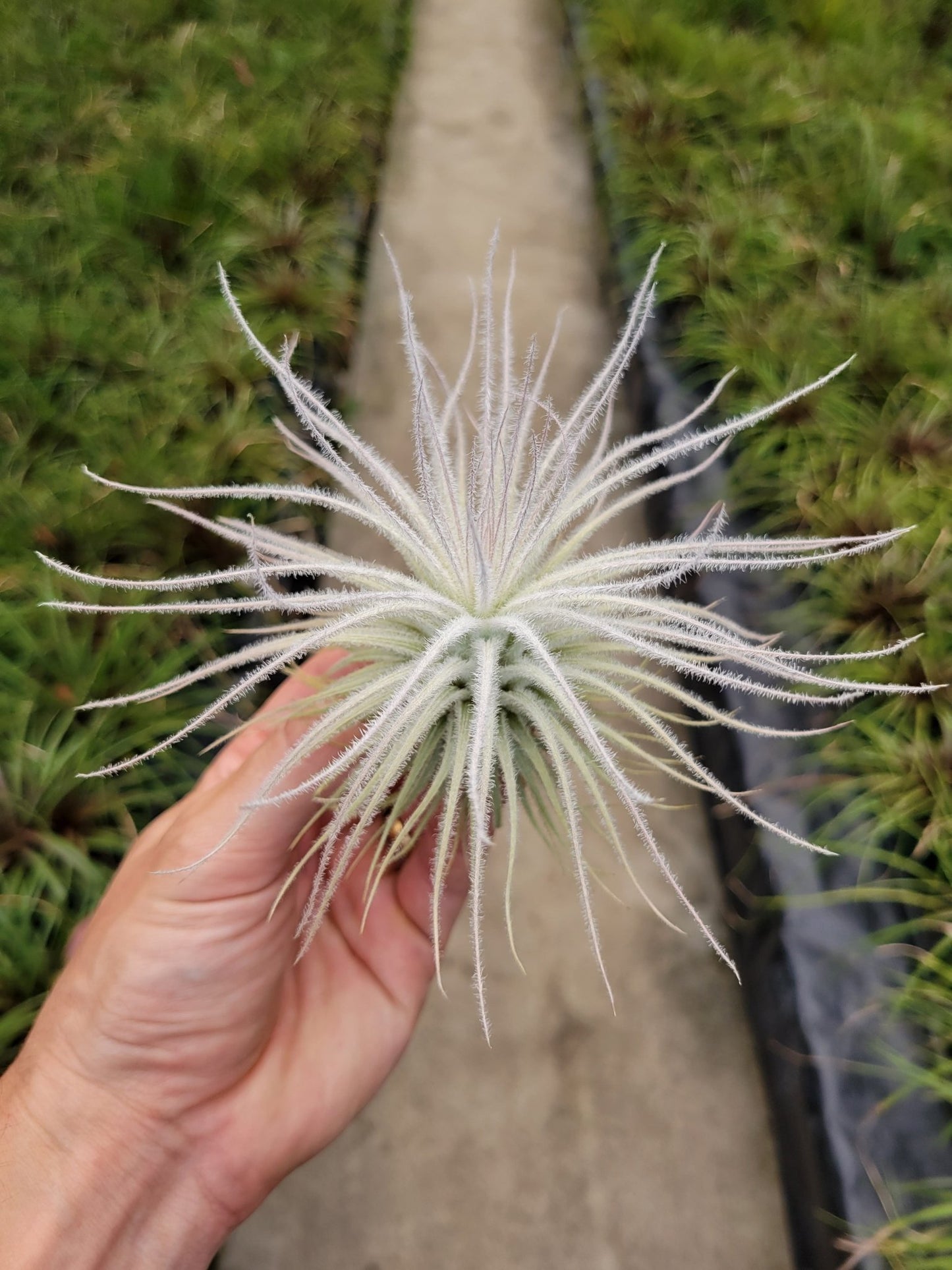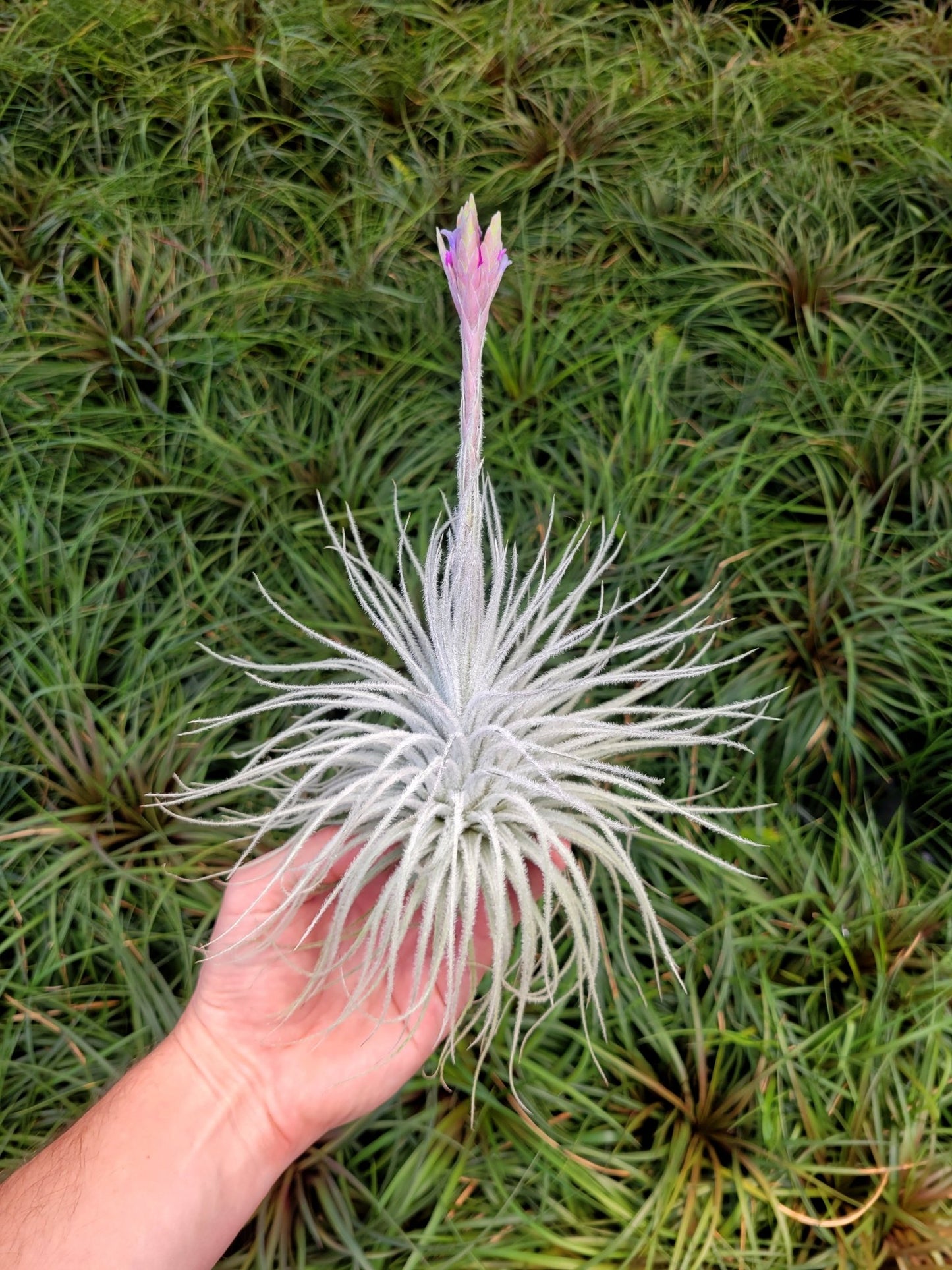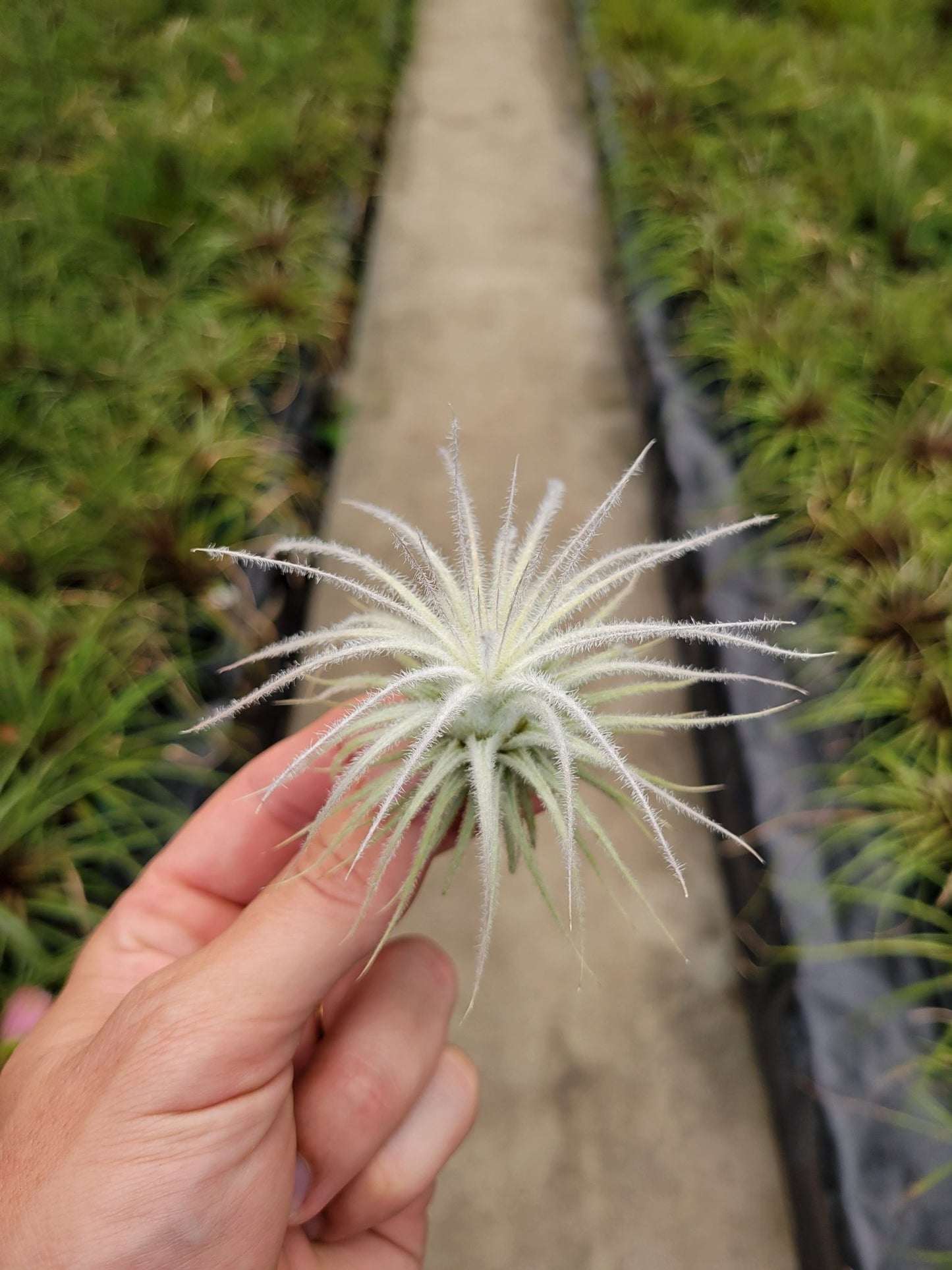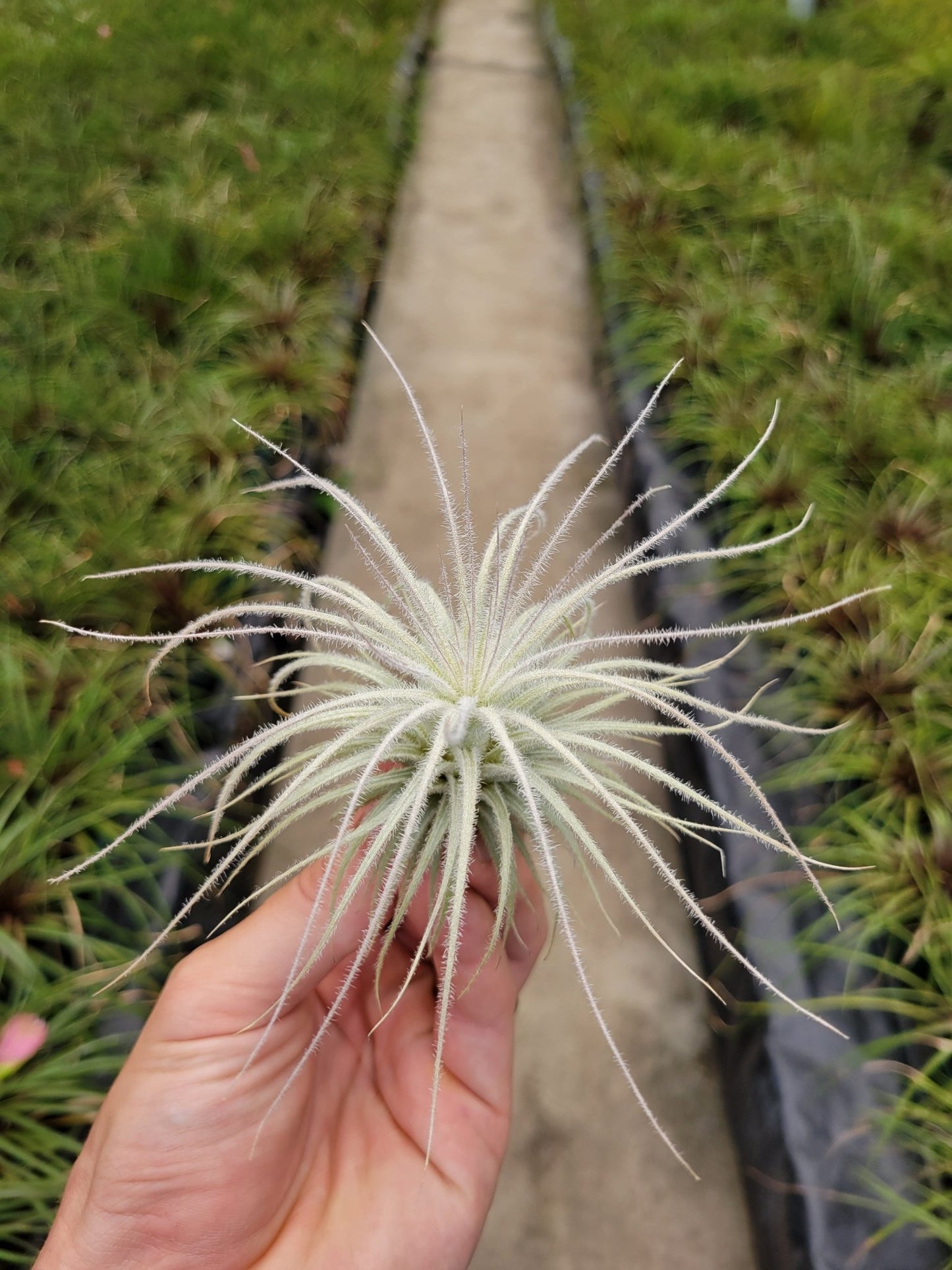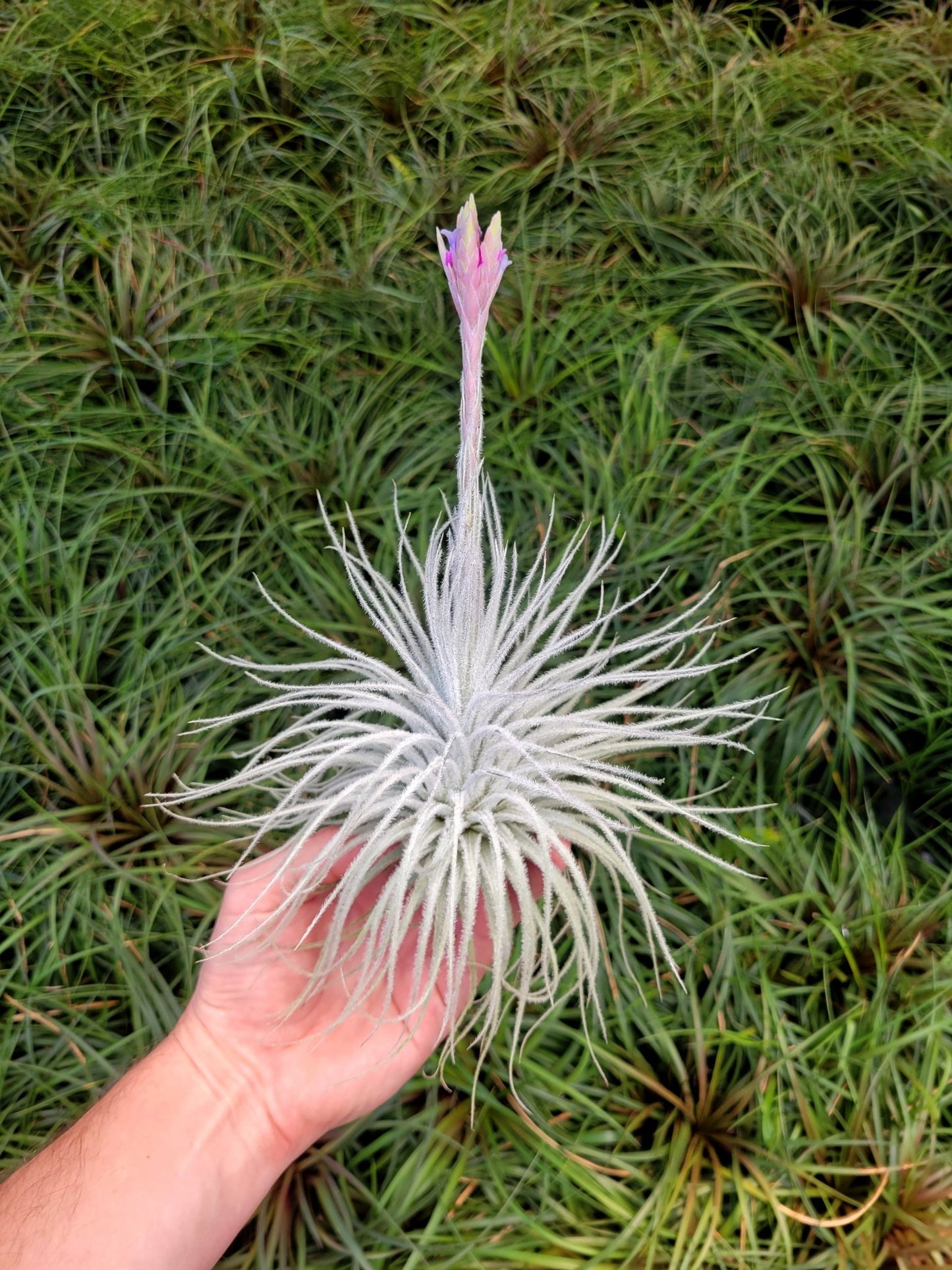1
/
of
5
Bromeliaceae
Tillandsia tectorum 'Fuzzball'
Tillandsia tectorum 'Fuzzball'
Regular price
$6.95 USD
Regular price
Sale price
$6.95 USD
Unit price
/
per
Shipping calculated at checkout.
Couldn't load pickup availability
Share
Discover the stunningly tactile Tillandsia tectorum 'Fuzzball', a coveted variety in the airplant world:
- Extreme fuzziness: Dense trichomes create a uniquely plush appearance
- Drought adaptation: Trichomes help conserve water in its native Andean habitat
- Rising popularity: Highly sought-after for its exceptional beauty
Key features:
- Silvery-white appearance due to abundant trichomes
- Excellent air pollution tolerance, making it ideal for urban environments
- Requires less frequent watering than other Tillandsia species
Scientific note: T. tectorum's dense trichomes serve multiple purposes:
- Reflect excess sunlight, protecting against UV damage
- Trap moisture from the air, enhancing water absorption
- Provide insulation against temperature extreme
| Size |
Inches |
| Small | 1" |
| Medium | 2"-3" |
| Large | 5"-6" |
Ideal for: Collectors, texture enthusiasts, and those seeking a low-maintenance, visually striking airplant.
Elevate your Tillandsia collection with the irresistibly fuzzy 'Fuzzball'. Its extreme trichome coverage makes it both a visual marvel and a testament to nature's adaptability.
